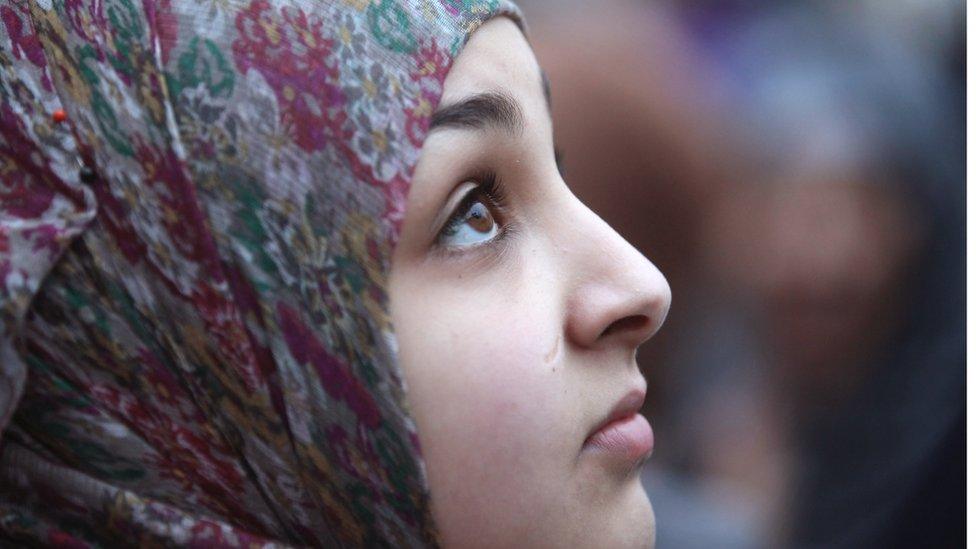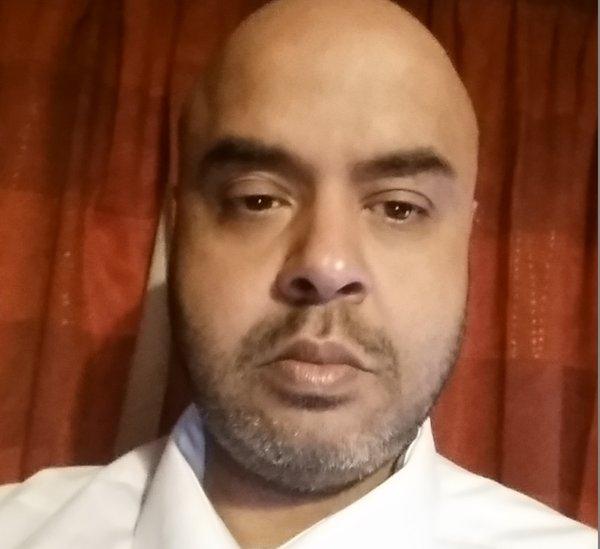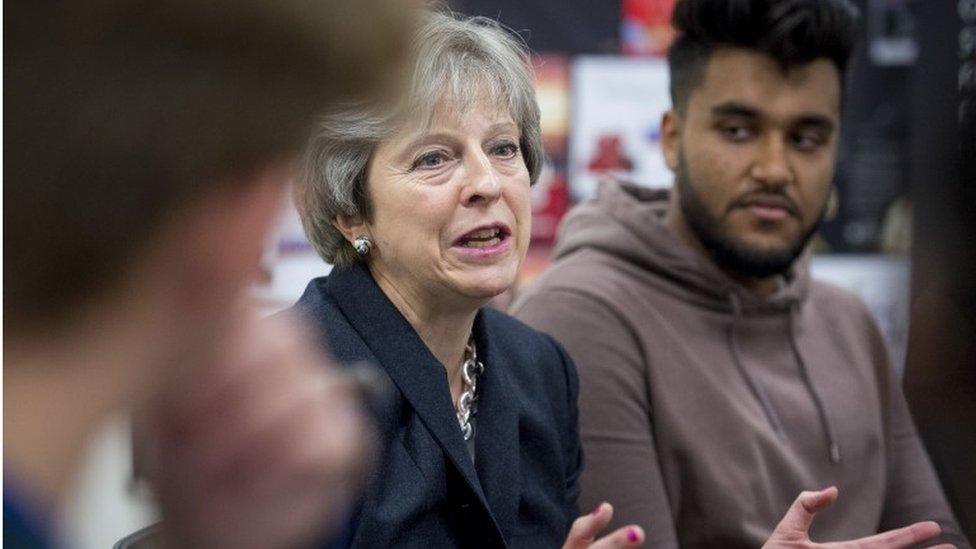'I got a job after I removed my headscarf'
- Published

A young woman wearing a headscarf
Three people from ethnic minority backgrounds in Britain have told the BBC how they believe race inequality has affected their lives.
One woman, Shazia Khan from Birmingham, said she was only successful in a job interview after she stopped wearing her headscarf.
It comes after a new government website, external revealed disparities between ethnicities in Britain in educational attainment, health, employment and treatment by police and courts.
Shazia Khan, who is 33 years old, used to wear a headscarf for religious reasons.
"I was interviewed for six jobs that I didn't get.
"You know when you've done well in an interview and I just thought to myself, 'what am I doing wrong?'" she explained.
Friends suggested she try attending an interview without her headscarf. Shazia was sceptical but gave it a go.
"After one of the first interviews I was offered the job. I was gobsmacked.
"It may just be a coincidence, but it made me realise that people can discriminate."
She felt depressed afterwards and only wears her headscarf when she goes to the mosque.
"I felt really sad realising that people are treated differently because of the colour you are, or your name. That people have difficult getting a job because of this. I felt uncomfortable and it made me more paranoid."
Subtle but serious
Morris, who asked that the BBC reveal his first name only, is black and says his career progression in local government has been blocked because of his race.
"It's so subtle that if someone tried to put a hand on it, it's hard for you to really see it.
Awal Hassan tells Radio 4's Today he was unable to take out a loan for a council flat
"I worked on implementing a new policy - I had to teach people how to arrange the budgets, work with the policy and the processes around it.
"They finally went to create a position of manager, which involved the duties I was already doing.
"Of course I didn't get the job. Instead, they hired a white British woman who was a junior admin, a level 2 who wasn't even working in our area, who didn't even know what the new policy was.
"Even though I was in a multicultural town, there were no black managers," Morris told the BBC.
'No chance'
Rajesh Kumar Tewari, who's 42, recently achieved a Masters degree in Criminology with distinction, but says that an adviser in a job centre in London told him he had no chance of working as a police officer or in the civil service.
"I had put for the three choices of job search: Police, National Security and Civil Service.

Rajesh Kumar Tewari has a Masters degree in Criminology
"The adviser replied that as I had never been a police officer or worked in a government position, I had 'no chance in any of these' and proceeded to tell me to be realistic," he explained.
Rajesh says that the adviser suggested he instead select a job in customer service.
"She said that these new choices were more suitable for me.
"I wonder whether Oxbridge grads, white or BAME, are told what I was told at the job centre? I bet that they get a far smoother ride to success than I have.
"I worked hard for 4 years only to be told that it was meaningless. I feel I have more chance of being handed a mop and bucket and being a warehouse cleaner than working in the government."
By Tom Gerken, UGC & Social news
- Published10 October 2017

- Published10 October 2017